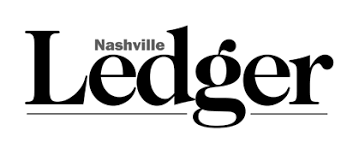Partner Tara Aaron-Stelluto was recently quoted in a Nashville Ledger article titled, “Generation AI: Are new artificial intelligence tools like ChatGPT, DALL-E the future of tech or just the latest hype?”
In the editorial, Tara comments on the intellectual property issues arising from generative AI models:
The speed at which [generative AI] technologies emerge and mature tests not only U.S. but international protection of creative works, says Tara Aaron-Stelluto, partner at Barton LLP, a full-service law firm with offices in Nashville, New York and Los Angeles.
“On the copyright side, there’s another aspect to this,” says Aaron-Stelluto, whose practice has focused on copyright and privacy. “AI is being trained on basically everything that’s available on the internet. And by ‘available,’ I don’t even necessarily mean publicly accessible. It’s whatever it can scrape, which involves an awful lot of copyright ownership, owned material.
“Getty has sued Stability AI because it scraped all of Getty’s images to use as a library to train the AI in order to create the images that people ask for,” she continues. “There is a fair-use argument there, and the courts have been very sympathetic to this idea of transformative use.
“If you use someone’s content to make something completely new and different, then they consider that fair use and so it’s not copyright infringement. They’re not copying the Getty images into the new design of whatever someone has asked for; they’re using it to train AI to create new things. I think it’s pretty likely that the courts are going to see that as fair use.
“Whether or not they’re going to find copyright ownership in what’s created by AI? I think probably, because otherwise you’re sort of destroying the market, in some ways, and creating a lot of unforeseen consequences, if you say that everything that’s created by AI automatically ends up in the public domain. I think that would be rocking the boat more than courts like to do.”
Despite appearances, Aaron-Stelluto says, wholesale changes to copyright law aren’t necessarily needed to keep up with the changes brought about by these new tools.
“Copyright law can answer these questions about AI,” she says. “How it will go about doing that we still aren’t entirely certain, but it can do that.
“I’ve seen people say this, ‘Well, the law’s going to have to change.’ No, it’s not. It doesn’t have to and it won’t, because Congress is not going to rewrite copyright law for the benefit of AI. So it’s going to work within the parameters, which copyright law is perfectly capable of handling,” she says. “In terms of whether or not there’s going to be regulation about AI, I don’t know. There are a lot of things that probably should have been regulated a long time ago that haven’t been.
“I think if we start to see massive misuse in the privacy space, then Congress might get interested, but if what it is is the AI programs scraping the internet and messing with people’s copyrights, Congress is going to leave it to the courts to sort that out.”
You can read the full article here.


